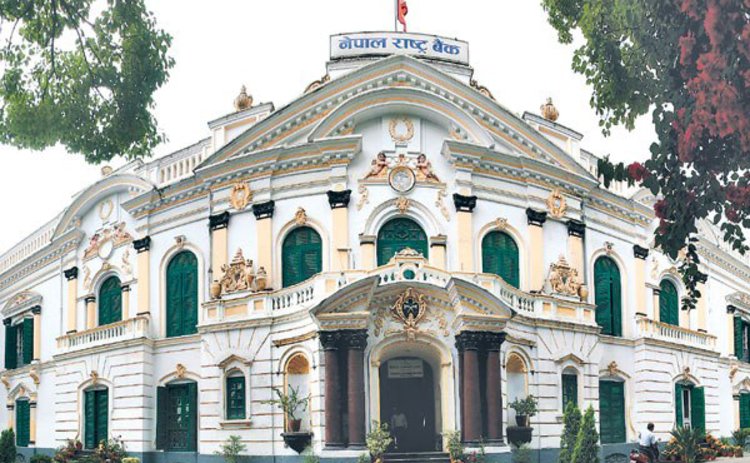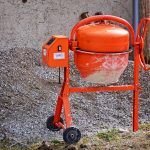
The bank accounts of 28 industrial companies that have not paid their debts to the Nepal Electricity Authority (NEA) will not be frozen by the Nepal Rastra Bank.
In a letter dated November 27, NEA Managing Director Kulman Ghising urged the central bank to take action against the companies that were in default. This came after the Electricity Regulation Commission’s recommendation on November 26 to not cut power and the Nepali government’s decision on November 10.
On November 26, the NEA received an order from the Electricity Regulatory Commission cautioning against turning off the companies’ electricity. The NEA was forced to reevaluate its previous ruling as a result.
A Cabinet meeting on November 10 resolved to keep the companies whose connections had been severed on October 24 receiving power. In addition to directing the NEA to collect the dues from the enterprises within 15 days, the Cabinet decision was made public on November 12.
During the lengthy load-shedding days in Nepal a few years ago, the industrial companies continued to use electricity through specialized feeders and trunk lines, while the general public suffered from hours-long power outages. However, the companies have been hesitant to pay the debts.
The authority took the extraordinary step of asking the central bank to freeze these companies’ bank accounts after the government stepped in to stop the NEA from turning off the electricity to them.
According to an NRB officer, the bank has not responded to the NEA’s email request even though it was received.
Requests to freeze a person’s bank account can only be made by the government or law enforcement. According to Bhagawat Acharya, the central bank’s assistant information officer, “we are not authorized to freeze individual bank accounts without such a request.”
A bank account can be suspended in three different ways, according to NRB officials.
All bank accounts within the banking system may be frozen if a comprehensive examination into the account bearer is carried out. A certain quantity of money deposited into a bank account can also be frozen, as can specific bank accounts, making it impossible to withdraw a specific amount of money from the account.
If we were to freeze the accounts as the authority requested, we would have to suspend the bank accounts of all these industrialists. However, according to a central bank official, a provision grants the bank discretion when freezing bank accounts that many people depend on.
“We don’t know how many people depend on the 28 companies’ bank accounts.” Suspending the bank accounts might cause disruptions in a number of sectors, the officials noted.
According to bank officials, an account that has been frozen cannot be accessed without a valid permission from the person making the request.
The circumstances under which the Nepal Rastra Bank may freeze bank accounts are listed in Article 110 of the Bank and Financial Institution Act of 2017.
In response to a request from an authorized officer looking into any crime; or to protect the interests of the country by stopping the financing of terrorism and money laundering; or to control any organized crime, corruption, or potential crime that may arise in the dealings of banks and financial institutions.
An NRB officer, speaking on condition of anonymity, stated that the NEA request had no legal basis because the businesspeople were not charged with anything of that nature.
“We are not required to act on the request because it was not made by a law enforcement agency,” the official stated.
Another NRB official, who is presently on forced leave, refuted this assertion. We cannot reject the NEA’s request as lacking legal power because its goal was to recoup government revenue. However, whether or not to carry out such a request is ultimately up to the bank, the NRB officer stated. “It was also unclear if the decision was made by an individual or if the NEA board had approved it.”
The board had not chosen to freeze the businessmen’ bank accounts, according to Suresh Acharya, secretary at the Ministry of Energy, Water Resources, and Irrigation and a member of the NEA Board of Directors.
In a similar letter, the authority asked the Nepal Stock Exchange and the Office of the Company Registrar to freeze the shares owned by the firms that were in default and to stop granting permission to issue new shares.
Along with the demands, the authorities have received a list of industrial enterprises that are in default. The largest amount of unpaid debt, Rs1.6 billion, is owed by Jagdamba Steels. Other significant defaulters include Reliance Spinning Mill (Rs753.6 million), Arghakhanchi Cement (Rs448.4 million), and Maruti Cement (Rs574.4 million).
On October 24, the power company had previously disconnected these businesses’ electricity connections. But on November 12, after a protracted argument between the government and Ghising, the head of the NEA, the power supply was restored. This came after the NEA was instructed to restore the industries’ supply within 24 hours during a Cabinet meeting on November 10. Based on the Time of Day (ToD) meter system, the Cabinet also directed the NEA to collect the outstanding balance within 15 days.
Later, the government told NEA not to block the power supply until a committee headed by Professor Arbinda Mishra gave a report on how to settle the tariff dispute.
Sujan Kaphle, a chartered accountant, and Shree Ram Pandey are on the committee headed by Professor Mishra. The committee is now working on its report, which will be presented to the government shortly, according to Acharya, secretary at the Ministry of Energy, Water Resources, and Irrigation.










